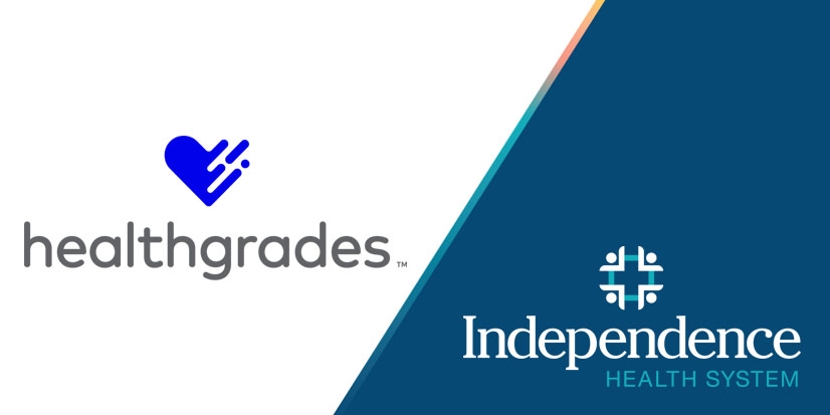Excela Health Marks First Year Of Performing Transcatheter Aortic Valve Replacements
- Category: Media Release, Cardiovascular Care, Excela Health Foundations
- Posted On:

GREENSBURG, PA, February 2, 2022 … Aortic stenosis is the most common valvular abnormality among adults, with more than 200,000 cases per year across the United States, most often among men over age 50. As part of its observation of February as National Heart Month, Excela Health is marking its first anniversary of offering minimally invasive aortic heart valve replacement as part of a widening array of procedures available to the residents of Westmoreland County within the Heart and Vascular Center at Excela Health Westmoreland Hospital.
Transcatheter Aortic Valve Replacement (TAVR) is being performed on patients with symptomatic, severe aortic stenosis (narrowing or restriction of blood flow) at low, intermediate or high risk for standard valve replacement surgery. A TAVR typically takes less than an hour to complete, and patients can expect to spend less time in the hospital after TAVR compared to traditional surgical valve replacement. At Excela Health, the average length of stay is one day following TAVR.
“While the COVID public health crisis has overshadowed the day-to-day health needs of many within our community, we have remained vigilant in offering a variety of life-altering procedures to patients over this same period,” said Carol J. Fox, MD, Excela Health’s Chief Medical Officer. “Thanks to our expert team within the cardiovascular program, we have continued to identify patients who would benefit from minimally invasive procedures such as TAVR or other surgical interventions and care for them in a safe, efficient manner.”
Since the procedure was first available at Excela Health in February 2021, more than 130 patients have been evaluated for TAVR. Of those, 90 have already received their new valve or on the TAVR schedule at Excela Health. Another seven patients were candidates for replacement heart valves but required surgical intervention. A handful of patients are being monitored for future consideration. In only one instance was valve replacement not recommended.
Aortic valve stenosis ranges from mild to severe. Signs and symptoms generally occur when narrowing of the valve is severe. Some people with aortic valve stenosis may not have symptoms for many years which is why procedures to correct the problem are often performed later in a patient’s life. That holds true for Excela Health, where the youngest patient evaluated for TAVR thus far is age 67.
Current guidelines from the American Heart Association and American College of Cardiology characterize symptoms of severe aortic stenosis as shortness of breath, angina, fatigue, syncope and palpitations. Without aortic valve replacement, severe aortic stenosis is a life-threatening disease and carries a poor short-term prognosis, with a survival rate as low as 50% within two years of symptom development.
“The poor prognosis for patients with severe symptomatic aortic stenosis, if left untreated, rivals that of certain malignancies and even severe heart artery disease,” said Excela Health interventional cardiologist Nevin Baker, DO, FACC, FSCAI, who spearheads TAVR utilization.
For decades, the previous standard of care has been open-heart surgery for aortic valve replacement. TAVR offers an alternative method for many patients. During this minimally invasive, percutaneous approach, the valve is typically implanted through the femoral artery, although other access points may be used. TAVR can be an effective option to improve the quality of life in patients who otherwise have limited choices for the repair of their aortic valve.
Prior to treatment, patients are evaluated within Excela’s Structural Heart Program by a multidisciplinary team that includes cardiothoracic surgeons, interventional cardiologists, cardiovascular imagers, cardiac anesthesiologists and nurse navigators. The team reviews cardiac imaging, coronary angiography and CT scans along with clinical history to make the best clinical decision for each patient.
“Optimal treatment is based on this team approach to assist patients in pursuing therapy that is most appropriate for their aortic stenosis,” added Dr. Baker. “When compared with the national average, our program has lower rates of complications such as major vascular complications or need for permanent pacemaker following device implantation.”
“Excela Health continues to underscore its commitment to offer patients the convenience of advanced cardiovascular care from an exceptional team of clinicians on a local basis,” said John Sphon, Excela Health Chief Executive Officer. “COVID may have presented a myriad of challenges to overcome, but it has not derailed us from serving our community. We are continuing to expand the scope of services and expertise we offer across a spectrum of specialties, thereby minimizing the need for patients to travel out of the area to receive quality care when it is available close to home.”
TAVR is just one in a growing list of procedures that will be performed in a hybrid catheterization lab newly opened at Excela Westmoreland Hospital. This state-of-the-art hybrid suite allows interventional cardiologists, radiologists and cardiac and vascular surgeons to work together in one room to perform traditional diagnostic functions of a cardiac catheterization lab or interventional radiology suites, combined with traditional surgical functions of the operating room. Its real-time intraoperative image guidance systems provide unparalleled imaging capabilities in the operating room itself -- before, during and after the procedure. For patients, that can translate into a shorter procedure, less post-operative recovery time and less risk for complications.
To learn more, visit ExcelaHealth.org and search TAVR.

